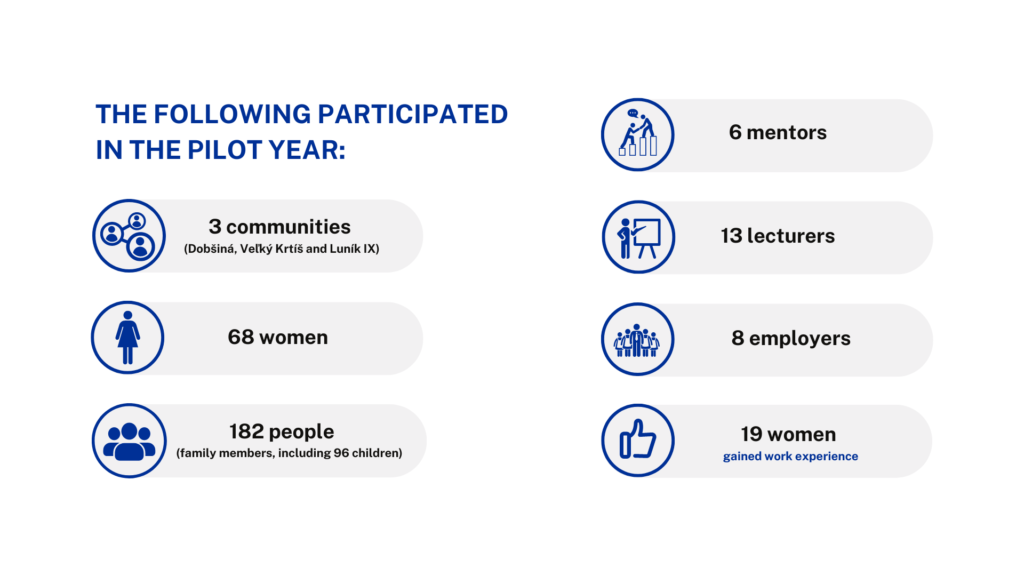The pilot year of the UPre Women programme started in January 2022 and ran until August 2023. However, before the actual launch, we conducted a unique study under the guidance of experts called UPre Women: the status and empowerment of women in selected marginalised Roma communities. It aimed to map what, who, and especially how to help Roma women to improve their status and living conditions and to find jobs. In doing so, the researchers also focused on empowerment, a tool used in community development worldwide. Simply put, it is about teaching people to catch their own fish rather than giving them a ready-made one.
On April 4, 2022, we organised an international online conference entitled How to make the labour market accessible to women from marginalised Roma communities? The four-hour thought-provoking programme focused on the challenges and solutions that can strengthen the employability of women from marginalised Roma communities.
We first implemented this educational-development programme with 39 women in Dobšiná and Veľký Krtíš, in cooperation with a partner that has experience in increasing the employment of the long-term unemployed – the Labour Agency of the Banská Bystrica Self-Governing Region and the community organisations OZ Detstvo deťom (Childhood to Children Civic Association) and Komunitné centrum menšín Veľký Krtíš (Community Centre of Minorities in Veľký Krtíš).
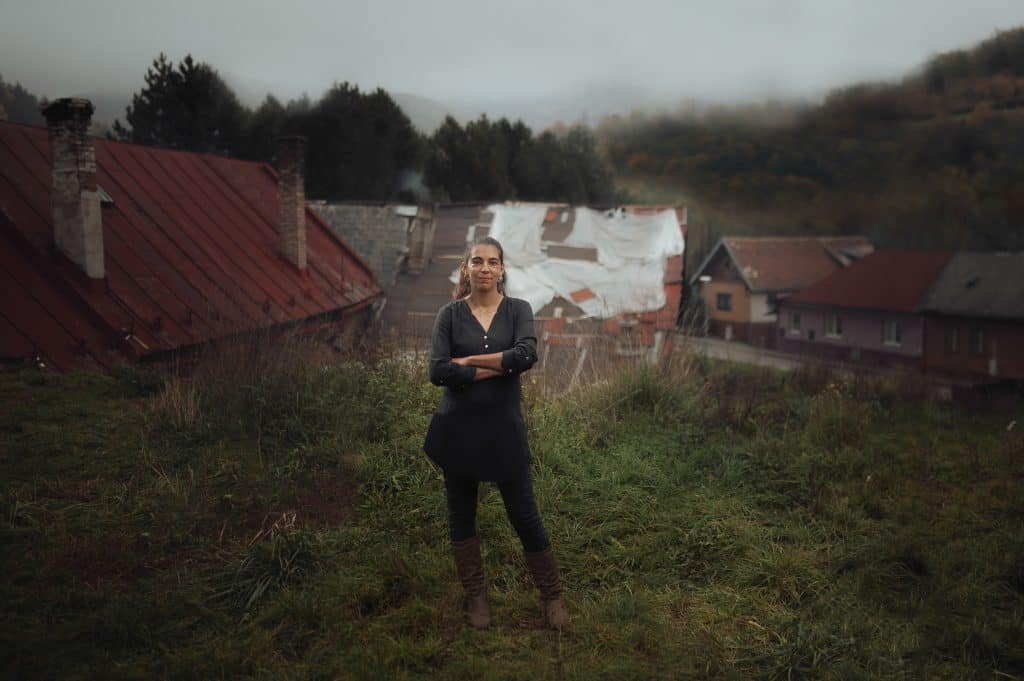
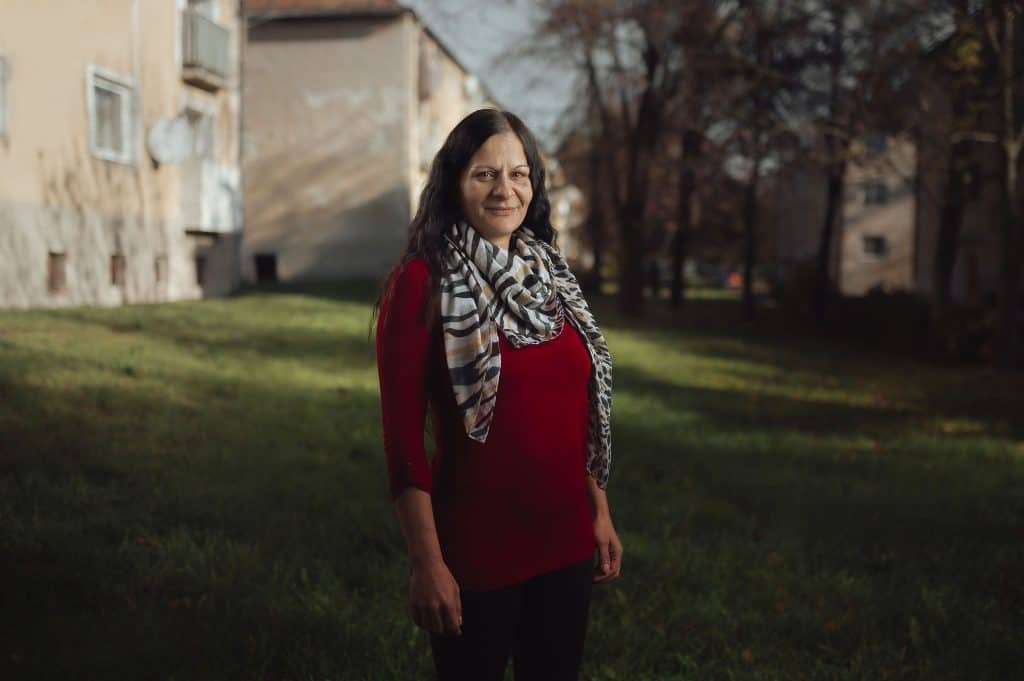
In October 2023, we started to implement UPre Women also in Luník IX in Košice. 22 women signed up for the programme and their stories were not easy. They perceived their participation in the training as an opportunity to escape from everyday worries and learn something new.

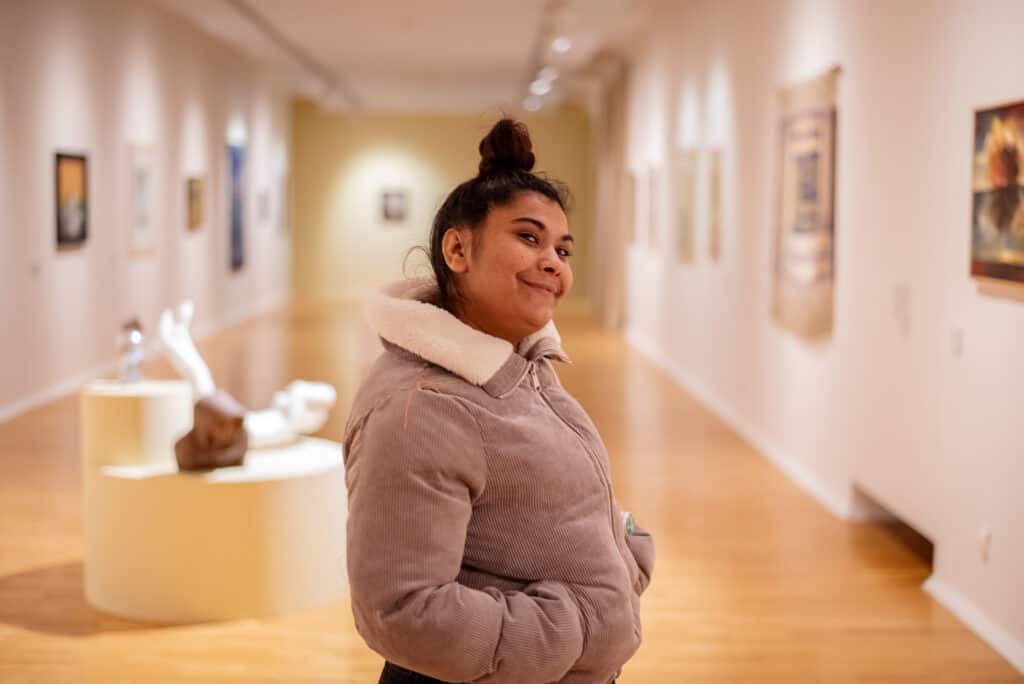
We have included an intensive self-defence course in education in all locations. Its aim was to teach women how they can avoid conflict and, when it can no longer be avoided, how they can successfully defend themselves against physical attack. They were also taught how to work with stress, which can negatively affect them not only in the event of a possible attack but also, for example, in a job interview.

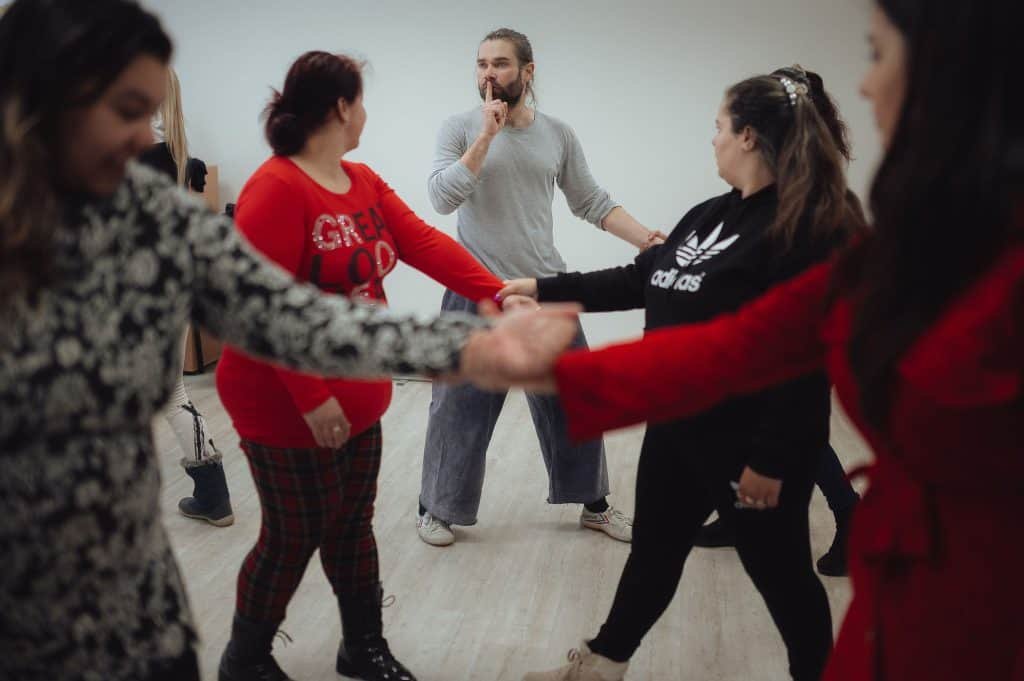
Participants in the UPre Women programme are women in households, taking care of children and the entire family. Therefore, they need their family members to support and advocate for them so that they can work and get an education. That is why we have systematically worked and communicated with whole families. We explained to them why it is important for women to educate themselves as well as to overcome their limits and how they can help them to do so. We organised 8 family meetings.
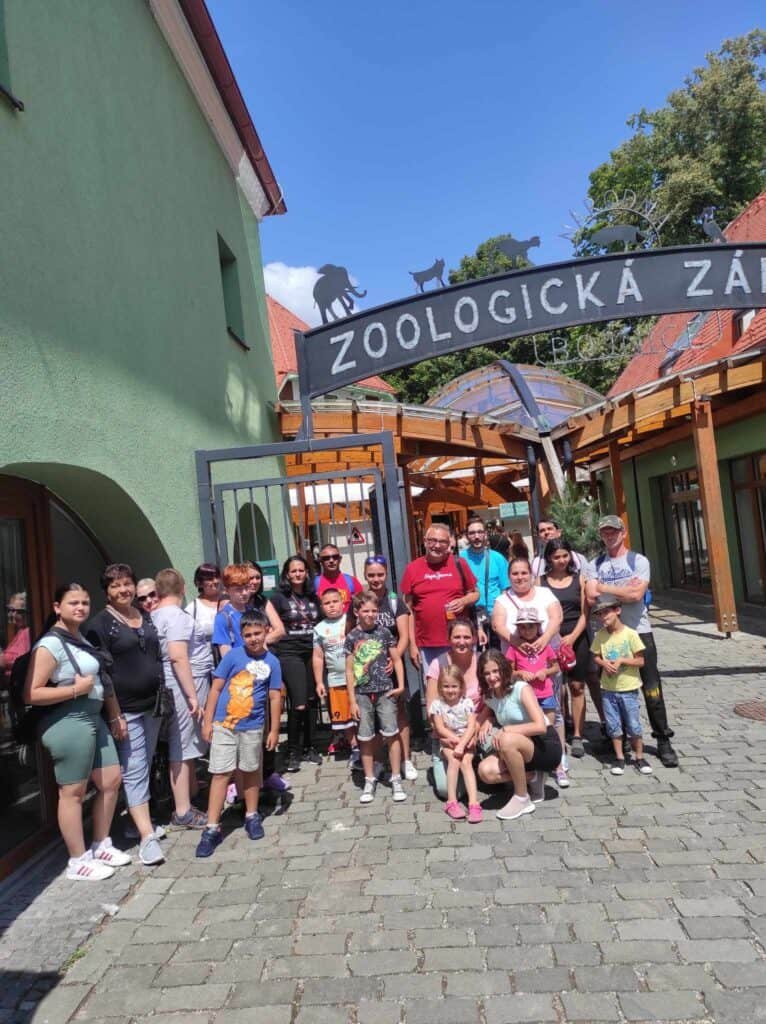
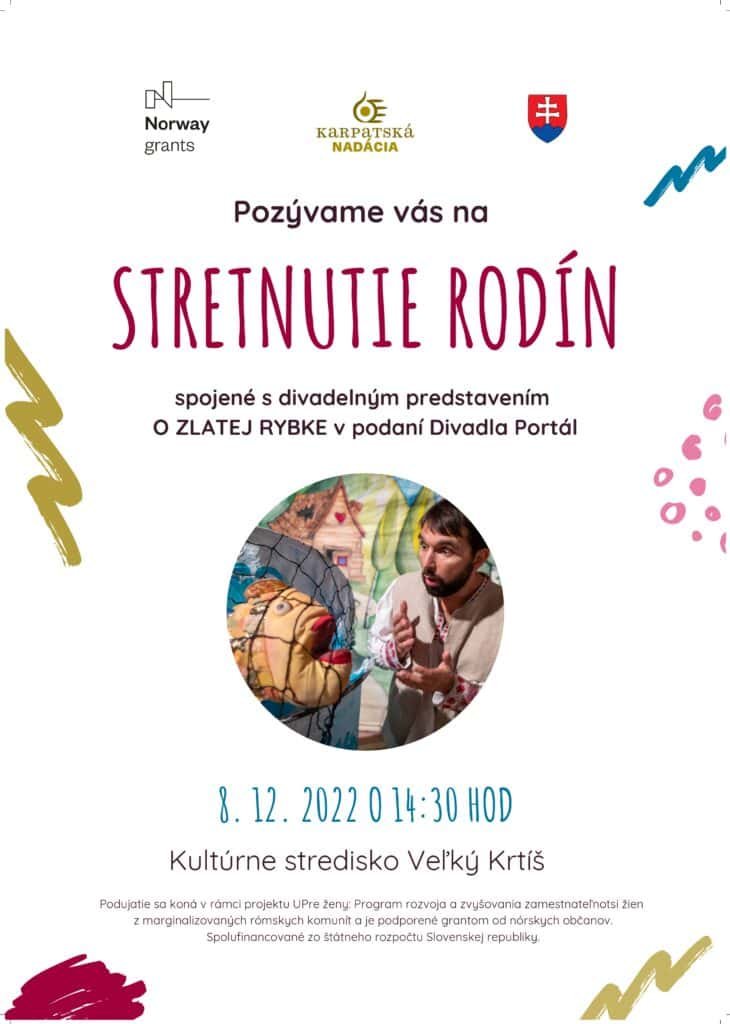
The programme also aims to raise awareness in society, whose views and attitudes can have a significant impact on people living in exclusion. That is why, as part of the awareness-raising activities, we organised events where we brought together people from both the majority and Roma minority, shared important stories and messages with them and prepared a stimulating cultural experience.


After the ending the programme in Dobšiná and Veľký Krtíš, we produced an important publication that captured our approaches and findings on the empowerment of Roma women in exclusion, particularly in relation to economic empowerment.
But we didn't just work with the women themselves and their families. We also focused intensively on communicating with employers and invited them to our round-table sessions to share experiences and discuss how to enable women living in generational poverty and facing social exclusion to find and keep jobs. We then wrote down the barriers and tried-and-tested solutions in a short document. They are particularly helpful for employers and relevant government institutions. Based on these interactions, we have been able to create a partnership with AmCham through which we inspire employers to start systematically addressing the employment of women living in exclusion. At the same time, we are trying to get them to share know-how among themselves that will help create employment opportunities for the UPre Women programme participants.
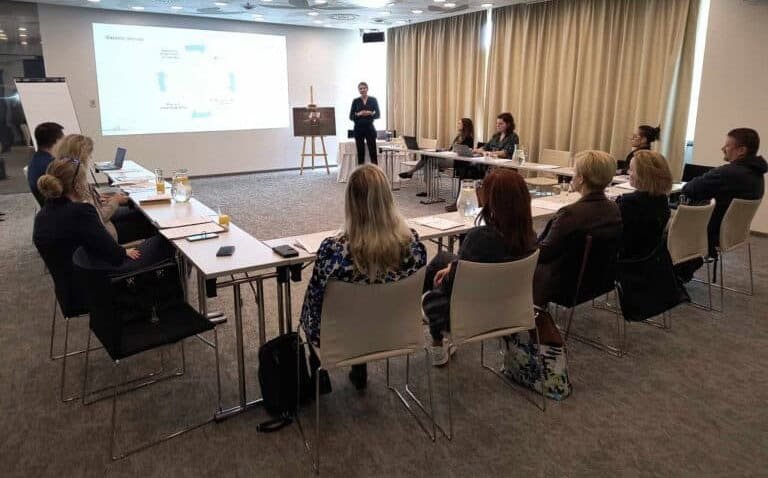
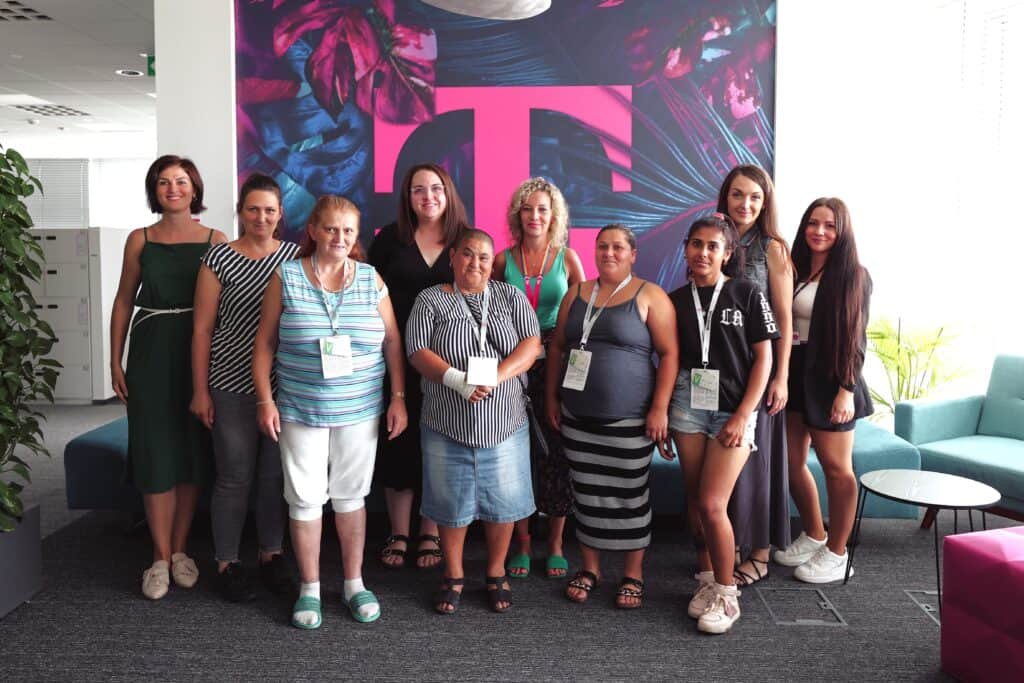
The whole educational process (which included the professional area – writing a CV, preparing for an interview,...; financial literacy, gender equality, gender-based violence and discrimination, strengthening communication skills and personal development) was carried out under the guidance of experienced lecturers and experts.
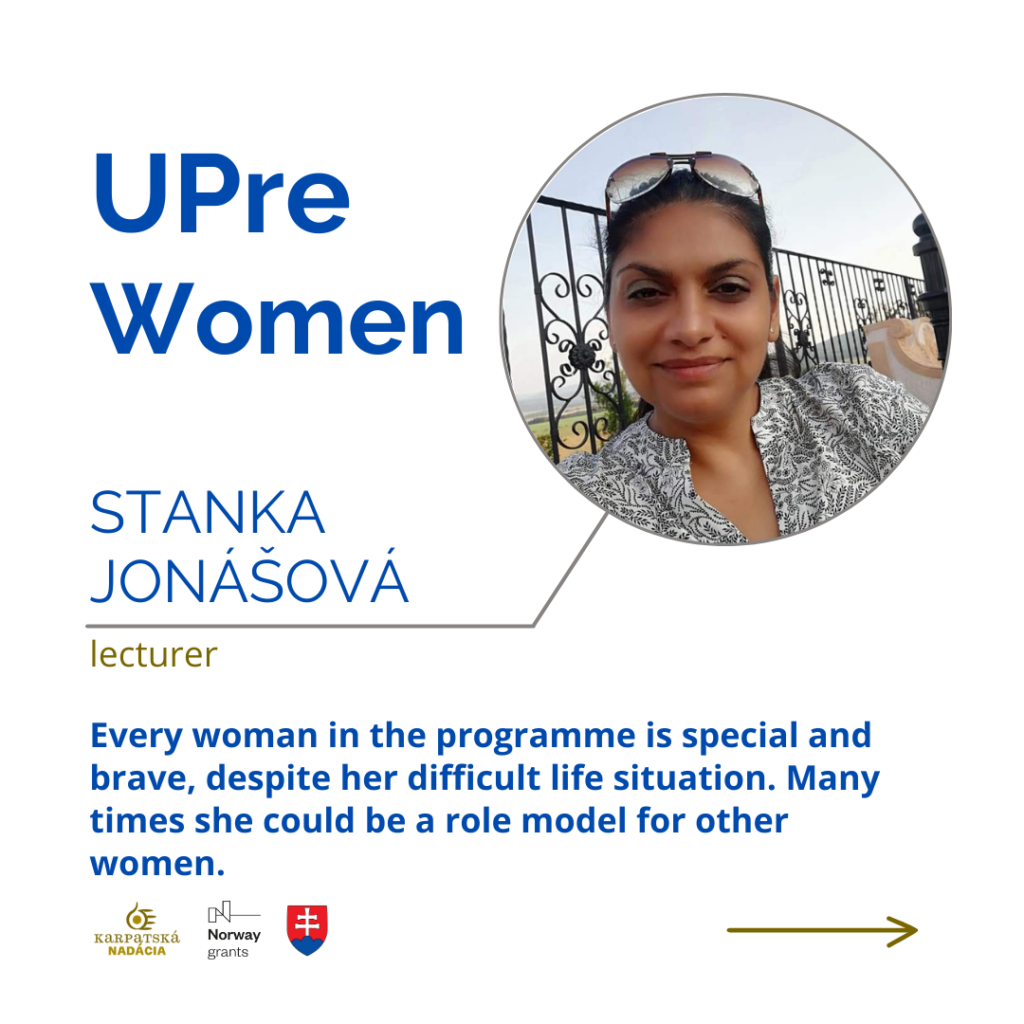
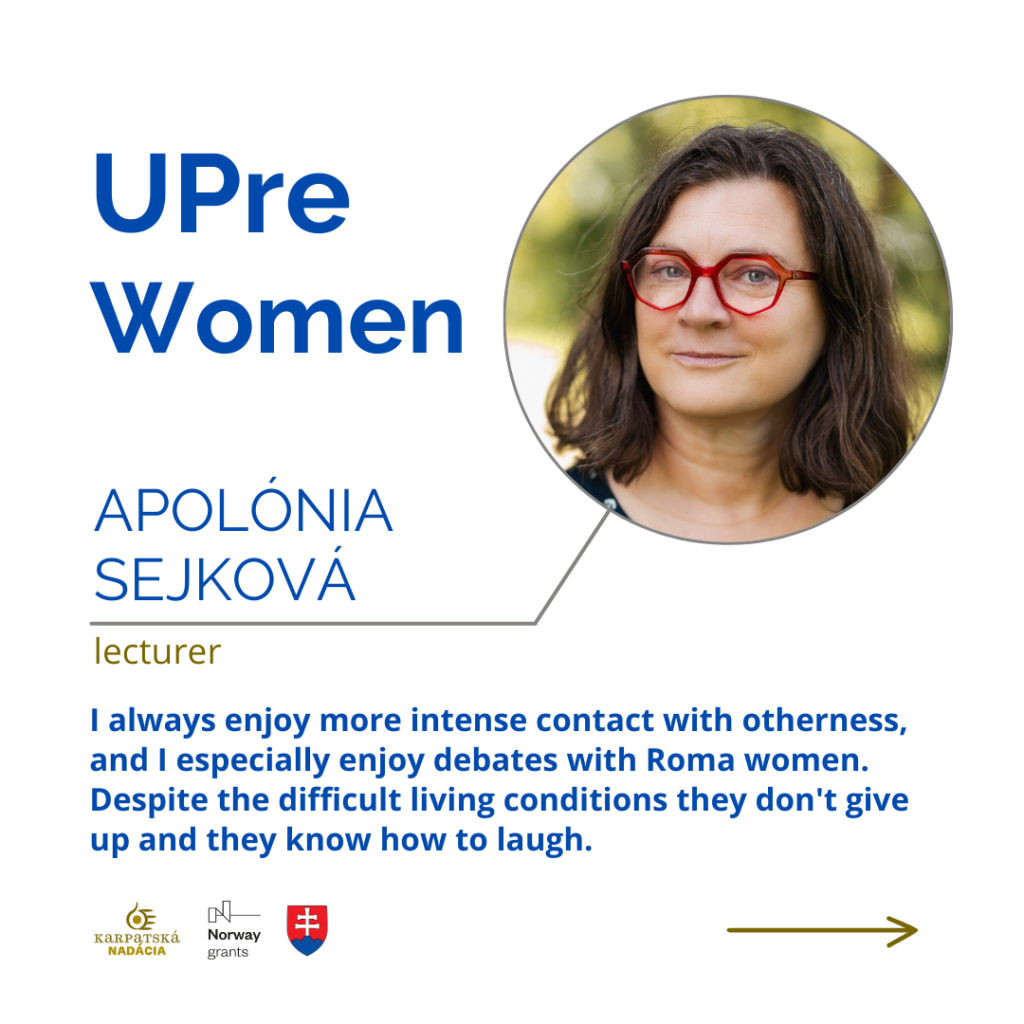
Video about the programme:
